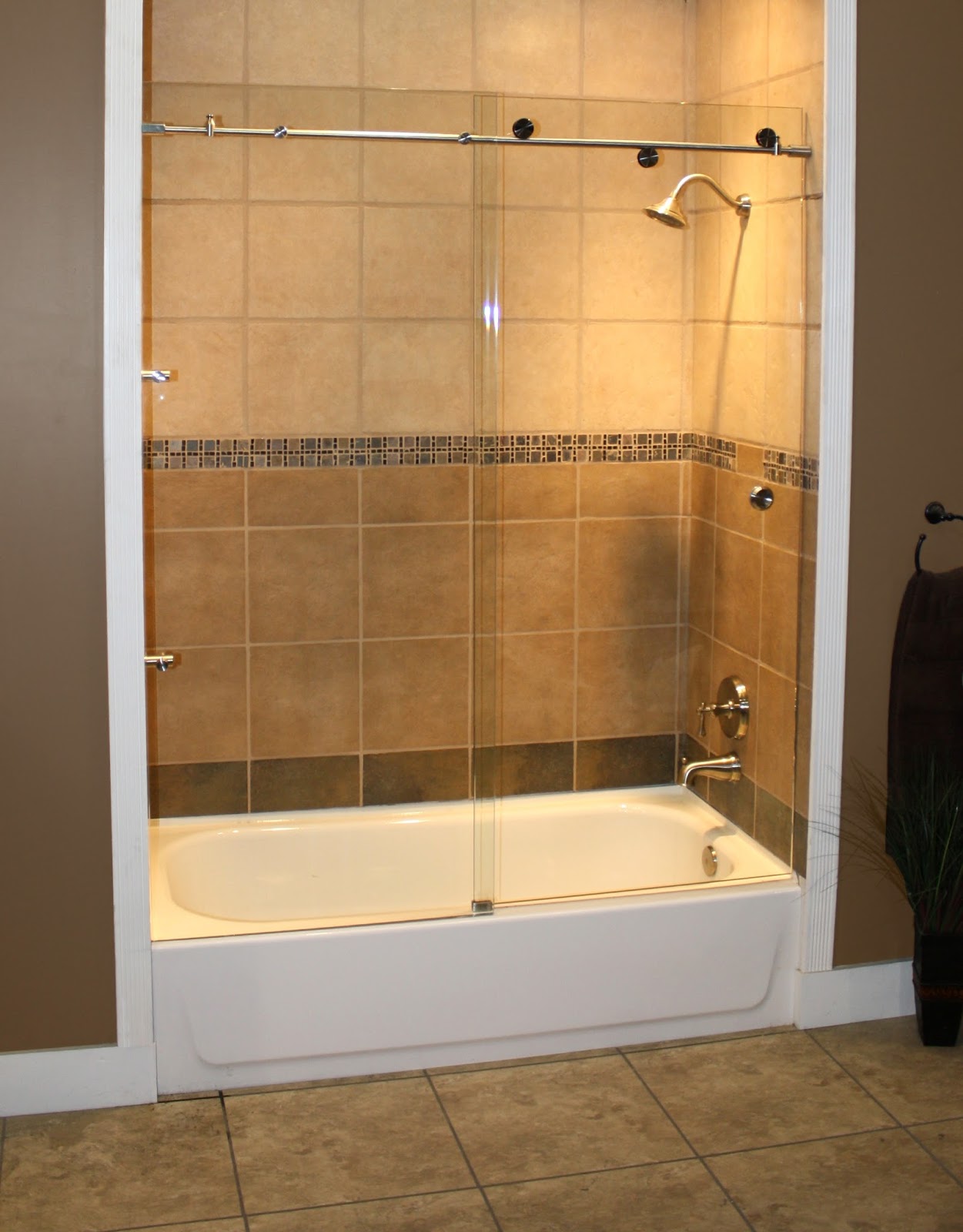Bathtub Bliss & Shower Sanctuary: Enclosures Unveiled
Imagine stepping into a bathroom that feels like a spa, a personal sanctuary where the stresses of the day melt away under the warm spray of a shower or in the soothing embrace of a bath. The key to creating this oasis? The often-overlooked but crucial element: the bathtub and shower enclosure. Beyond mere functionality, these structures define the aesthetic and experience of your bathing space. They transform a utilitarian area into a place of relaxation and rejuvenation.
Bathtub and shower enclosures have evolved significantly. From simple curtains to elaborate glass structures, these enclosures now offer a wide range of options to suit every style and budget. Understanding the nuances of these enclosures – from materials and designs to installation and maintenance – is essential for anyone looking to upgrade their bathroom.
Historically, bathing rituals were often communal and open-air. As private bathing spaces became the norm, the need for enclosures arose. Early enclosures were rudimentary, often consisting of simple curtains or wooden panels. With the advent of modern plumbing and materials like glass and acrylic, shower and bath enclosures transformed into the sleek, stylish, and functional designs we see today. This evolution reflects not only advancements in technology but also changing societal values regarding privacy and comfort.
The primary function of a bath or shower enclosure is to contain water and prevent it from splashing onto the bathroom floor. This practical purpose is intertwined with aesthetics. Enclosures contribute significantly to the overall look and feel of the bathroom. However, choosing the right enclosure can be challenging. Considerations include space limitations, design preferences, budget constraints, and maintenance requirements. Navigating these complexities is key to achieving the desired balance between form and function.
A shower enclosure specifically refers to a structure surrounding a shower area, typically made of glass, acrylic, or composite materials. It can range from a simple single-door stall to a multi-panel, walk-in design. A bathtub enclosure, on the other hand, is designed to surround a bathtub, offering protection from splashes and often incorporating a showerhead for combined functionality. Understanding these distinctions is crucial in selecting the right enclosure to fit your bathing needs and bathroom layout.
One of the primary benefits of bath and shower enclosures is enhanced privacy. They create a dedicated space for personal hygiene and relaxation. Secondly, enclosures improve bathroom hygiene by containing water and preventing the spread of mold and mildew. Finally, they contribute significantly to the aesthetic appeal of the bathroom, adding a touch of elegance and modernity.
Advantages and Disadvantages of Bathtub and Shower Enclosures
| Advantages | Disadvantages |
|---|---|
| Enhanced Privacy | Potential for Higher Cost |
| Improved Hygiene | Complex Installation in Some Cases |
| Increased Property Value | Requires Regular Cleaning |
Best Practices for Implementing Bathtub and Shower Enclosures:
1. Accurate Measurements: Precise measurements of your bathroom space are crucial before purchasing any enclosure.
2. Professional Installation: Consider hiring a professional for complex installations to ensure proper sealing and functionality.
3. Proper Ventilation: Adequate ventilation is essential to prevent moisture buildup and mildew growth.
4. Material Selection: Choose durable and easy-to-clean materials like tempered glass or acrylic.
5. Regular Maintenance: Implement a regular cleaning routine to prevent soap scum and water spots.
Frequently Asked Questions:
1. What are the different types of shower enclosures? (Framed, frameless, sliding, hinged, etc.)
2. How do I clean my shower enclosure? (Use a mild soap solution and a squeegee.)
3. What is the average cost of a bathtub enclosure? (Varies greatly depending on size, material, and features.)
4. Can I install a shower enclosure myself? (Possible for simpler designs, but professional installation is recommended for complex ones.)
5. What materials are shower enclosures made of? (Glass, acrylic, composite materials.)
6. How do I prevent mildew in my shower enclosure? (Ensure proper ventilation and regular cleaning.)
7. What is the difference between a framed and frameless shower enclosure? (Framed enclosures have metal frames around the glass panels, while frameless ones do not.)
8. How do I choose the right size shower enclosure for my bathroom? (Measure your bathroom space carefully and consider your bathing needs.)
Tips and Tricks: Use a squeegee after each shower to prevent water spots. Regularly apply a sealant to prevent leaks. Consider a shower enclosure with built-in shelves for extra storage.
In conclusion, choosing the right bathtub or shower enclosure is a critical decision in any bathroom renovation or new build. From the simplest shower stall to the most elaborate bathtub enclosure, these structures play a vital role in both the functionality and aesthetics of your bathroom. By carefully considering the various factors outlined in this article – from material and design to installation and maintenance – you can transform your bathroom into a true sanctuary. Investing in a quality enclosure not only enhances the visual appeal of your space but also contributes to a more hygienic and enjoyable bathing experience. Don't overlook the power of a well-chosen enclosure to elevate your daily routine and create a relaxing retreat in the heart of your home. Take the time to research, plan, and select the perfect enclosure that meets your needs and reflects your personal style. Your future self, stepping into a warm, inviting shower or a soothing bath, will thank you.
Shower bliss built in tile bench seats for your dream bathroom
Gordon ramsay kicks out whoopi
Score big with creativity desenho para colorir jogadores de futebol














